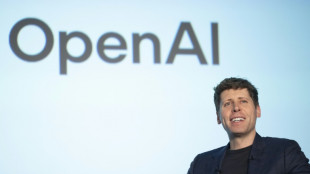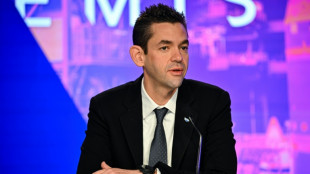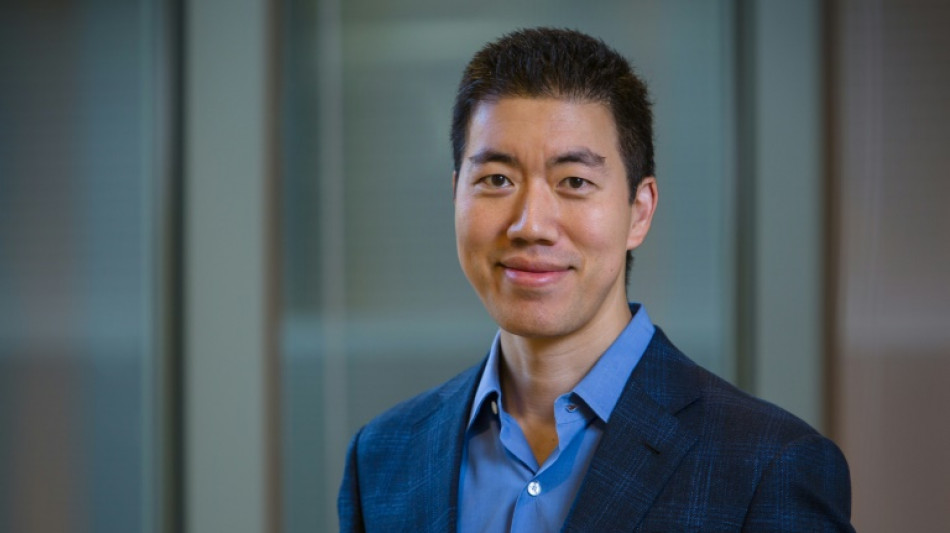
-
 'Sinners' wins top prize at Screen Actors Guild awards
'Sinners' wins top prize at Screen Actors Guild awards
-
New rules, same old suspects as F1 revs up for 2026 season

-
 World Cup tickets: Huge demand and sky-high prices
World Cup tickets: Huge demand and sky-high prices
-
List of key Actor Award winners

-
 Trump hunkers down after Iran strikes
Trump hunkers down after Iran strikes
-
China's leaders gather for key strategy session as challenges grow

-
 UK toughens asylum rules to discourage migration
UK toughens asylum rules to discourage migration
-
Israel hits Lebanon after Hezbollah fire, expanding Iran war

-
 CBS in turmoil as US media feels pressure under Trump
CBS in turmoil as US media feels pressure under Trump
-
Messi bags double as Miami battle back to down Orlando

-
 Greenland is 'open for business' -- kind of, says business leader
Greenland is 'open for business' -- kind of, says business leader
-
Canada's Carney to mend rift, boost trade as he meets India's Modi

-
 Crude soars, stocks drop after US strikes on Iran
Crude soars, stocks drop after US strikes on Iran
-
Iran war spreads across region as US, Israel suffer losses

-
 Miriam Margolyes tackles aging in Oscar-nominated short
Miriam Margolyes tackles aging in Oscar-nominated short
-
Recognition, not competition, for Oscar-nominated foreign filmmakers

-
 Israel, Hezbollah trade fire: latest developments in Iran war
Israel, Hezbollah trade fire: latest developments in Iran war
-
Israel strikes Tehran: latest developments in Iran war

-
 Trump vows to avenge first US deaths as Iran war intensifies
Trump vows to avenge first US deaths as Iran war intensifies
-
Lowry collapses late again, Echavarria snatches victory in Cognizant Classic

-
 Aubameyang strikes twice as Marseille edge Lyon in Ligue 1
Aubameyang strikes twice as Marseille edge Lyon in Ligue 1
-
Infantino says players who cover mouths when speaking could be sent off

-
 Bolsonaro son rallies the right as thousands protest Brazil government
Bolsonaro son rallies the right as thousands protest Brazil government
-
Juve stay in Champions League hunt with last-gasp Roma draw

-
 Maersk suspends vessel transit through Strait of Hormuz
Maersk suspends vessel transit through Strait of Hormuz
-
France, Germany, UK ready to take 'defensive action' against Iran

-
 Knicks halt Spurs' 11-game NBA winning streak
Knicks halt Spurs' 11-game NBA winning streak
-
EU warns against long war, urges 'credible transition' in Iran

-
 Bored of peace? Trump keeps choosing war
Bored of peace? Trump keeps choosing war
-
Arteta embraces Arsenal's 'Set-Piece FC' label after corners sink Chelsea

-
 Sevilla rescue derby draw to deal Betis top four setback
Sevilla rescue derby draw to deal Betis top four setback
-
India need 'special effort' to beat England in semi-final: Gambhir

-
 'A terrible day,' says Israel community shaken by deadly Iranian strike
'A terrible day,' says Israel community shaken by deadly Iranian strike
-
Arsenal corner Chelsea into submission, Man Utd climb to third

-
 Arsenal win set-piece battle to sink Chelsea in title boost
Arsenal win set-piece battle to sink Chelsea in title boost
-
What future for Iranian leadership after Khamenei's death?

-
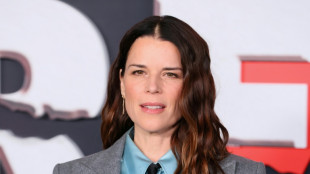 'Scream 7' makes a killing at N. America box office
'Scream 7' makes a killing at N. America box office
-
Thousands stranded as Iran conflict shuts Mideast hubs

-
 Samson's 97 puts India into T20 World Cup semi-final against England
Samson's 97 puts India into T20 World Cup semi-final against England
-
Latest developments as Iran retaliates to US-Israel strikes that killed Khamenei

-
 Spurs have 'big problems' says Tudor as relegation risk persists
Spurs have 'big problems' says Tudor as relegation risk persists
-
Dortmund captain Can out for season with ACL tear

-
 Leweling doubles up as Stuttgart sink sorry Wolfsburg
Leweling doubles up as Stuttgart sink sorry Wolfsburg
-
Man Utd climb to third, Fulham sink sorry Spurs

-
 Iran strikes send VIP Dubai influencers 'back to reality'
Iran strikes send VIP Dubai influencers 'back to reality'
-
Briton Brennan bursts to Kuurne-Bruxelles-Kuurne triumph

-
 Activists pressure Milan Fashion Week to go fully fur-free
Activists pressure Milan Fashion Week to go fully fur-free
-
Blasts in Kabul as Afghan govt says responding to Pakistan attacks

-
 Iranians grieve, celebrate, worry after Khamenei's killing
Iranians grieve, celebrate, worry after Khamenei's killing
-
Latest developments as Iran lashes out after US-Israel strikes kill Khamenei
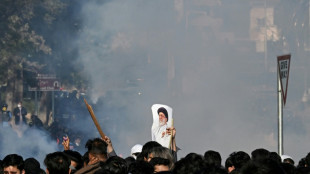

The scientist rewriting DNA, and the future of medicine
A revolution is underway in gene editing -- and at its forefront is David Liu, an American molecular biologist whose pioneering work is rewriting the building blocks of life with unprecedented precision.
A professor at the Broad Institute of MIT and Harvard, Liu was awarded a Breakthrough Prize in Life Sciences on Saturday for developing two transformative technologies: one already improving the lives of patients with severe genetic diseases, the other poised to reshape medicine in the years ahead.
He spoke with AFP ahead of the Los Angeles ceremony for the prestigious Silicon Valley-founded award.
He will receive $3 million for his work on "base editing" and "prime editing," and plans to donate most of it to support his charitable foundation.
"The ability to change a DNA sequence of our choosing into a new sequence of our choosing is a fundamentally very powerful capability," the 51-year-old said, foreseeing uses not just in human medicine but areas like developing more nutritious or disease-resistant crops.
- Correcting the code -
DNA is made up of four chemical "letters" -- the nucleotide bases A, G, T and C. Mutations in this sequence cause thousands of human diseases, yet until recently, gene editing could only fix a limited number of them.
Even CRISPR-Cas9, the groundbreaking technology that earned a Nobel Prize in 2020, has major limitations.
It cuts both strands of the DNA helix, making it most useful to disrupt rather than correct genes, while the process can introduce new errors.
"Being able to use genome editing to treat genetic diseases requires, in most cases, ways to correct a DNA misspelling, not simply to disrupt a gene," Liu said.
That insight led his lab to develop base editing, which uses the Cas9 protein -- disabled so it can no longer cut both DNA strands -- to find a target DNA sequence and another enzyme to convert one letter to another -- for example, C to T or G to A.
Reversing the change -- from T to C or A to G -- was tougher. Liu's team overcame the challenge by engineering entirely new enzymes.
These base editors can now correct about 30 percent of the mutations that cause genetic diseases. The technology is already in at least 14 clinical trials.
In one of them, Beam Therapeutics -- which Liu co-founded -- announced it had treated patients of AATD, a rare genetic disorder affecting the lungs and liver, with a single drug infusion.
While traditional gene therapies often disrupt faulty genes or work around them, base editing repairs the mutation itself.
"This was the first time that humans have corrected a mutation that causes a genetic disease in a patient," Liu said.
- Cystic fibrosis hope -
Base editing, quickly dubbed "CRISPR 2.0," can't fix every mutation.
About 70 percent of the roughly 100,000 known disease-causing mutations remain out of its reach, including those caused by missing or extra letters.
To expand the toolkit, Liu's lab introduced prime editing in 2019 -- a method capable of replacing entire sections of faulty DNA with corrected sequences.
If CRISPR is like scissors that cut DNA, and base editors are like using a pencil to correct individual letters, then prime editing is the equivalent of a word processor's "find and replace" function.
Creating this tool required a series of breakthroughs Liu's team describes as "small miracles." The result is, he said, "the most versatile way we know of to edit the human genome."
Among the targets Liu and his team have already pursued with prime editing: cystic fibrosis, a common genetic disease usually caused by three missing DNA letters that causes thick mucus buildup in the lungs and digestive system.
Liu's lab has made much of its work freely accessible, sharing DNA blueprints through a nonprofit library used by tens of thousands of labs worldwide.
"The science we create -- which is ultimately funded by society, through governments and donors -- ultimately goes back to benefit society."
This year's Breakthrough Prize awards come at a fraught moment for US science, as President Donald Trump's government strips funding for institutions like the National Institutes of Health (NIH).
"The NIH is a treasure, not just for this country but for the world," said Liu. "Trying to dismantle the heart of what supports science in this country is like burning your seed corn."
D.Moore--AMWN

